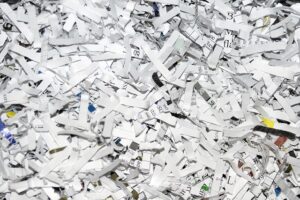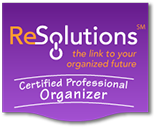
Are you drowning in papers? Have you tried to thin out your filing cabinet but are unsure of what you must keep? This is a question that I get asked a lot when working with my clients. What to keep? What papers to shred or just recycle?
Disclaimer: I am not a CPA or an attorney. Please check with both of yours before shredding or destroying any documents.
Let’s start with the most obvious papers that you should keep forever. The list includes, but may include other legal documents not listed here, birth certificates, marriage licenses, adoption papers, death certificates, wills (and all other estate planning documents), Social Security cards, military discharge papers, records of any paid mortgages, and divorce papers. All these documents should be kept in a secure location. Titles to home and car should be kept until you sell them. You may want to copy these and keep the originals in a safe or safe deposit box.
I have heard mixed messages related to tax returns. Personally, I think one should keep either electronic or hard copies of each year’s tax returns. Ask your accountant for advice on keeping your tax returns. Some experts say forever; others suggest ten years, seven years, or even just three. I defer to accountants as they are the professionals who will help you if ever audited. If you keep your tax returns and W-2s, they may be just what you need to prove your Social Security yearly earnings once retirement planning or Social Security filing rear their heads.
The IRS, if audited, may ask for supporting documentation for three to seven years after filing a tax return. These documents would include your W-2, 1099s, or any receipts that support tax deductions you have claimed.
If you own property, keep all records/receipts of any capital improvements to verify at tax time and to deduct from the property sale. These receipts should be kept with the closing papers in the tax year the property was sold. If possible, make a copy of all the receipts because over time, receipts fade. I experienced this firsthand when recently working on capital improvement costs when we sold my parent’s home.
When buying furniture or appliances keep those receipts as proof of purchase for warranty claims or for any damage or loss for insurance purposes. Again, make a copy of these receipts.
Documents you should keep for one year are pay stubs to check on the accuracy of your W-2s at year’s end and investment statements until you get the year end statement. Credit card and bank statements need only be retained for a year unless you need these to help with tax filing. If so, these supporting documents should be kept with your taxes for that year.
Keep the following items for one month unless they are needed for tax purposes; utility bills (until the next bill comes or you verify your payment was processed) and deposit and withdrawal records (or until they are reconciled on bank statements).
Safely dispose of any document that has any personal information or account numbers. Shredding with a cross-cut shredder is the best way to avoid identity theft. Investing in a shredder for your home is a good purchase. The tv shopping networks often offer excellent ones for about $100. My sister keeps a colored-coordinated shredder on every floor of her home so that she ‘lives’ my mantra of “OHIO”: Only Handle It Once. As soon as she has read a given document and determined that it is unneeded, she immediately shreds it, never looking back, i.e., she only handles it once.
Photo: Pixabay

 Join My Email List
Join My Email List